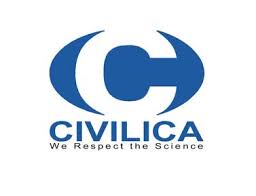About the journal
براساس نتایج دهمین دوره ارزیابی نشریات علمی دانشگاه آزاد اسلامی در شهریورماه سال 1402، مجله مطالعات زبانشناسی کاربردی به رتبه +A ارتقاء یافت و اخذ پذیرش وچاپ مقالات مستخرج از رساله دانشجویان دوره دکتری تخصصی در این مجله حائز ۳ نمره خواهد بود.
Journal of Applied Linguistics Studies (JALS) is a peer-reviewed , Open-Access Scientific Journal, published by Islamic Azad University, Aliabad Katoul Branch which is devoted to research into all aspects of applied linguistics. The journal is published twice a year in electronic formats. The journal invites research articles on fresh themes in curriculum development, teaching methodology and SLA research, testing and evaluation, discourse analysis, and other areas of Applied Linguistics. It welcomes contributions which critically reflect on current, cutting edge theory and practice in applied linguistics. Submission of a manuscript is taken to mean that it is an original work of the author(s) which has not been published elsewhere, and is not being considered for publication concurrently.
Since JALS is an Open-Access journal, Users of the Journal have the right to read, download, copy, distribute, print, search, or link to the full texts of published articles under the following conditions: Creative Commons Attribution–NonCommercial 4.0 International (CC BY-NC 4.0 license). (http://creativecommons.org/licenses/by-nc/4.0/)

![]()

(Conflicts of interest form) (Copyright Form)
![]()

(ALS-Template) (Plagiarism Checker)
Fees
According to the regulation put forth by Islamic Azad University, all authors are required to pay IRR 3 million upon submitting their manuscript and an additional IRR 6 million once they receive acceptance, with both payments being non-refundable.
Copyright
All Authors are requested to complete Journal's copyright form and submit it along with their papers.
Conflicts of Interest Form
All Authors are requested to complete Journal's conflicts of interest form and submit it along with their papers.
Plagiarism Report
All submissions must include a similarity report. Without a similarity report, submissions would be rendered incomplete and not processed under any circumstances. Thank you for standing with us to eliminate plagiarism and develop academic integrity.
-
Open Access Article
1 - The Effects of Image-Schema on Learning and Retention of English Prepositions by Intermediate Kurdish EFL Learners
Ahmed Aaeez Mohammad Mohammed Fatemeh Mirzapour Nesa NabifarIssue 1 , Vol. 4 , Autumn_Winter 2024 -
Open Access Article
2 - Enhancing Iranian EFL Students' Reading Fluency with Real-time Feedback through Adaptive Online Reading Instruction System
Nima Alizadeh Mehran Davaribina Reza KhorasaniIssue 1 , Vol. 4 , Autumn_Winter 2024 -
Open Access Article
3 - Unveiling Educational Insights: Exploring Students' Perceptions of the Hidden Curriculum in TEFL at the Undergraduate Level in Iran
Bahman Kazemi Hamid Ashraf Khalil Motallebzadeh Mitra zeraatpisheIssue 1 , Vol. 4 , Autumn_Winter 2024 -
Open Access Article
4 - Developing and Validating a Questionnaire for Iranian EFL Teachers’ Emotionality in the Iranian Context
Masoud Mortazavi Nezhad Fazlolah Samimi Shahram AfrazIssue 1 , Vol. 4 , Autumn_Winter 2024 -
Open Access Article
5 - Examining Textual Cohesion in Articles of Environment Discipline Written by English and Persian Authors
Batool Nasiri Bahman Gorjian Mohammad Alipour Arezou Molavi VardanjaniIssue 1 , Vol. 4 , Autumn_Winter 2024 -
Open Access Article
6 - Analyzing the Factorial Structure of English Language Teaching Aptitude Questionnaire: A Structural Equation Modeling Approach.
Fariba feyzbar Leila Akbarpour Firooz SadighiIssue 1 , Vol. 4 , Autumn_Winter 2024 -
Open Access Article
7 - Exploring into the Role of Teachers’ Self-Efficacy and Resilience in IELTS Context: A Qualitative Approach
Maryam Talebi Nacim Shangarffam Behdokht Mall-AmiriIssue 1 , Vol. 4 , Autumn_Winter 2024
-
Open Access Article
1 - A Critical Analysis of Prospect 3 Based on Nation and Macalister's Four-Strand Framework.
Hamed Arab Ali RastgouIssue 1 , Vol. 1 , Winter 2022 -
Open Access Article
2 - The Effect of CALL on the Vocabulary Learning of Iranian pre-intermediate EFL Learners
Aziz Emami Ali AmirghasemiIssue 1 , Vol. 1 , Winter 2022 -
Open Access Article
3 - A Qualitative Study of Socio-Cultural and Linguistic Factors Affecting Iranian EFL Learners' Language Proficiency
Somayyeh Amir Abadi Seyyed Ayatollah RazmjooIssue 1 , Vol. 1 , Winter 2022 -
Open Access Article
4 - Iranian EFL Teachers’ Perceptions of the Different Features of Mediation
Mahbubeh RezaeianIssue 1 , Vol. 1 , Winter 2022 -
Open Access Article
5 - The Relationship Between Iranian Intermediate EFL Learners’ Emotional Intelligence and Their Willingness to Communicate
Toktam Kermani NezhadIssue 1 , Vol. 1 , Winter 2022 -
Open Access Article
6 - Foreign Language Anxiety and Willingness to Communicate: High Level vs. Low Level Iranian EFL Learners
Yahya GhelichliIssue 1 , Vol. 1 , Winter 2022 -
Open Access Article
7 - Study of the Relationship between Teaching Style and Teacher Efficacy: A Quantitative Case Study in Mashhad, Iran
Azadeh GhorbanzadehIssue 1 , Vol. 1 , Winter 2022 -
Open Access Article
8 - Language Learning Strategies from the Bottom-Up: Successful EFL Learners’ Experience of Preparing for the University Admission English Test
Mehran Montazeri Seyyed Ali Ostovar-NamaghiIssue 1 , Vol. 1 , Winter 2022 -
Open Access Article
9 - Investigating the Level of TPACK among Iranian EFL Teachers in Relation to their Educational Background and Teaching Experience
Afshin Mansouri Qadikolaei Amir Marzban Ebrahim Fakhri AlamdariIssue 2 , Vol. 3 , Spring 2024 -
Open Access Article
10 - Digital Literacy in an EFL Classroom: Does Dynamic Assessment Benefit from the Literacy?
Mohammadreza Raeisi Davood Mashhadi Heidar Mohammadreza KhodarezaIssue 1 , Vol. 3 , Winter 2024







